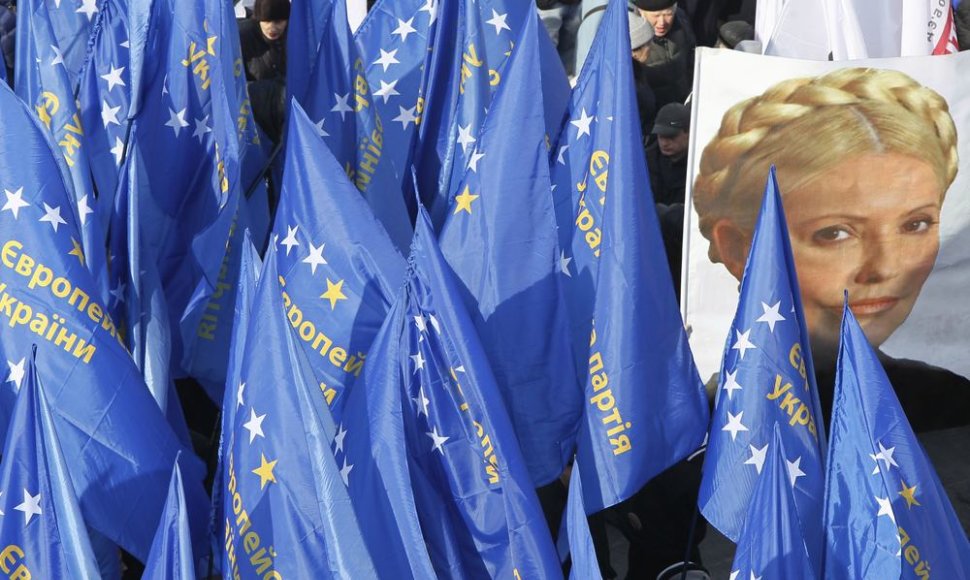"We are moving towards a resolution in the Tymoshenko case," Arnoldas Pranckevičius, external relations adviser to the EP President, told BNS by phone from Ukraine on Wednesday.
"It's hard to say how much time it will further need and what details of the agreement will be but we see a rather serious interest of Ukraine's top authorities," he said.
The adviser to EP President Martin Schulz also said specific details of the resolution of the Tymoshenko case are already being discussed.
Special envoys of the EP Monitoring Mission to Ukraine, Pat Cox, former president of the European Parliament, and Aleksander Kwasniewski, former president of Poland, met with Ukrainian President Viktor Yanukovych in Yalta on Tuesday, and the Tymoshyenko case was the main focus of the meeting, Pranckevičius said.
"There are certain expectations from both conflicting sides, the authorities and the opposition, the president on the one side and from Mrs. Tymoshenko," he said. According to Pranckevičius, the goal of the mission is to find a compromise between the two sides and ensure compliance with the agreement.
The EP mission representatives, however, refused to reveal any details of the agreement. "These are the main aspects as to why it is taking so long for us to find a solution. Those details are rather, as it is very popular to say in Lithuania, "toxic" and it's not good talking about that in public," he said.
Although changes are expected in the Tymoshenko case, other issues are raising concern, Pranckevičius said.
"Despite substantial progress in the context of selective justice, we are concerned that Ukraine is lagging behind on the way of other reforms. (...) The prosecution law, the election law, re-elections in five single-member constituencies, the organization of elections in the city of Kiev and other reforms which, unfortunately, are stalling and on which, unfortunately, the Verkhovna Rada's plenary session failed to agree in July," the EP representative said, adding that all these issues were postponed until September and that "is considerably pushing the calendar further."
According to Pranckevičius, Ukraine will fail to carry out certain reforms in time for the upcoming Eastern Partnership Summit in Vilnius in late November.
"Especially on the law enforcement and constitutional changes that need to be implemented, and they will not be implemented until the Vilnius meeting and could be implemented only in 2014," Pranckevičius said.
Asked whether Ukraine could still sign the association agreement in Vilnius, despite stalling reforms, Pranckevičius said that EU member states would have to decide on that. "We are calling on our Ukrainian partners not to forget all the remaining homework and not to find ourselves in a situation in November when we have progress on key issues but on other issues, the work is not done and because of that the signing would be blocked. It would really be a very bad scenario," the adviser to the EP president said.
Later on Wednesday, the EP special envoys are scheduled to meet with Tymoshenko who is currently being treated in a Kharkov hospital. It is the 19th visit of the Cox-Kwasniewski mission to Ukraine over the last 12 months.
Signing an association and free trade agreement with Ukraine is considered to be the most important goal of the Eastern Partnership Summit in Vilnius in November. Agreements with Armenia, Georgia and Moldova should be initialed in Vilnius.












